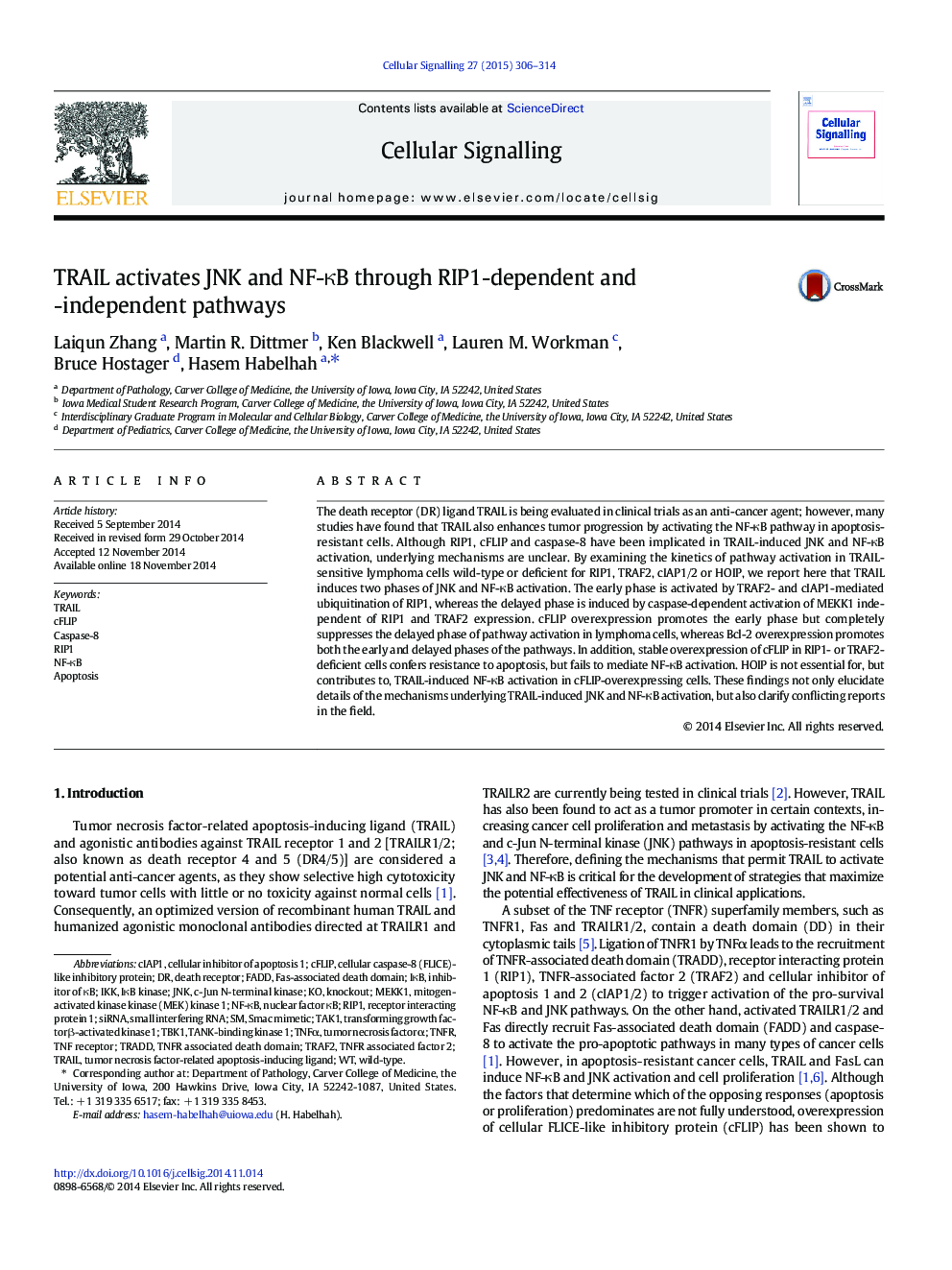| Article ID | Journal | Published Year | Pages | File Type |
|---|---|---|---|---|
| 10814877 | Cellular Signalling | 2015 | 9 Pages |
Abstract
The death receptor (DR) ligand TRAIL is being evaluated in clinical trials as an anti-cancer agent; however, many studies have found that TRAIL also enhances tumor progression by activating the NF-κB pathway in apoptosis-resistant cells. Although RIP1, cFLIP and caspase-8 have been implicated in TRAIL-induced JNK and NF-κB activation, underlying mechanisms are unclear. By examining the kinetics of pathway activation in TRAIL-sensitive lymphoma cells wild-type or deficient for RIP1, TRAF2, cIAP1/2 or HOIP, we report here that TRAIL induces two phases of JNK and NF-κB activation. The early phase is activated by TRAF2- and cIAP1-mediated ubiquitination of RIP1, whereas the delayed phase is induced by caspase-dependent activation of MEKK1 independent of RIP1 and TRAF2 expression. cFLIP overexpression promotes the early phase but completely suppresses the delayed phase of pathway activation in lymphoma cells, whereas Bcl-2 overexpression promotes both the early and delayed phases of the pathways. In addition, stable overexpression of cFLIP in RIP1- or TRAF2-deficient cells confers resistance to apoptosis, but fails to mediate NF-κB activation. HOIP is not essential for, but contributes to, TRAIL-induced NF-κB activation in cFLIP-overexpressing cells. These findings not only elucidate details of the mechanisms underlying TRAIL-induced JNK and NF-κB activation, but also clarify conflicting reports in the field.
Keywords
Related Topics
Life Sciences
Biochemistry, Genetics and Molecular Biology
Biochemistry
Authors
Laiqun Zhang, Martin R. Dittmer, Ken Blackwell, Lauren M. Workman, Bruce Hostager, Hasem Habelhah,
